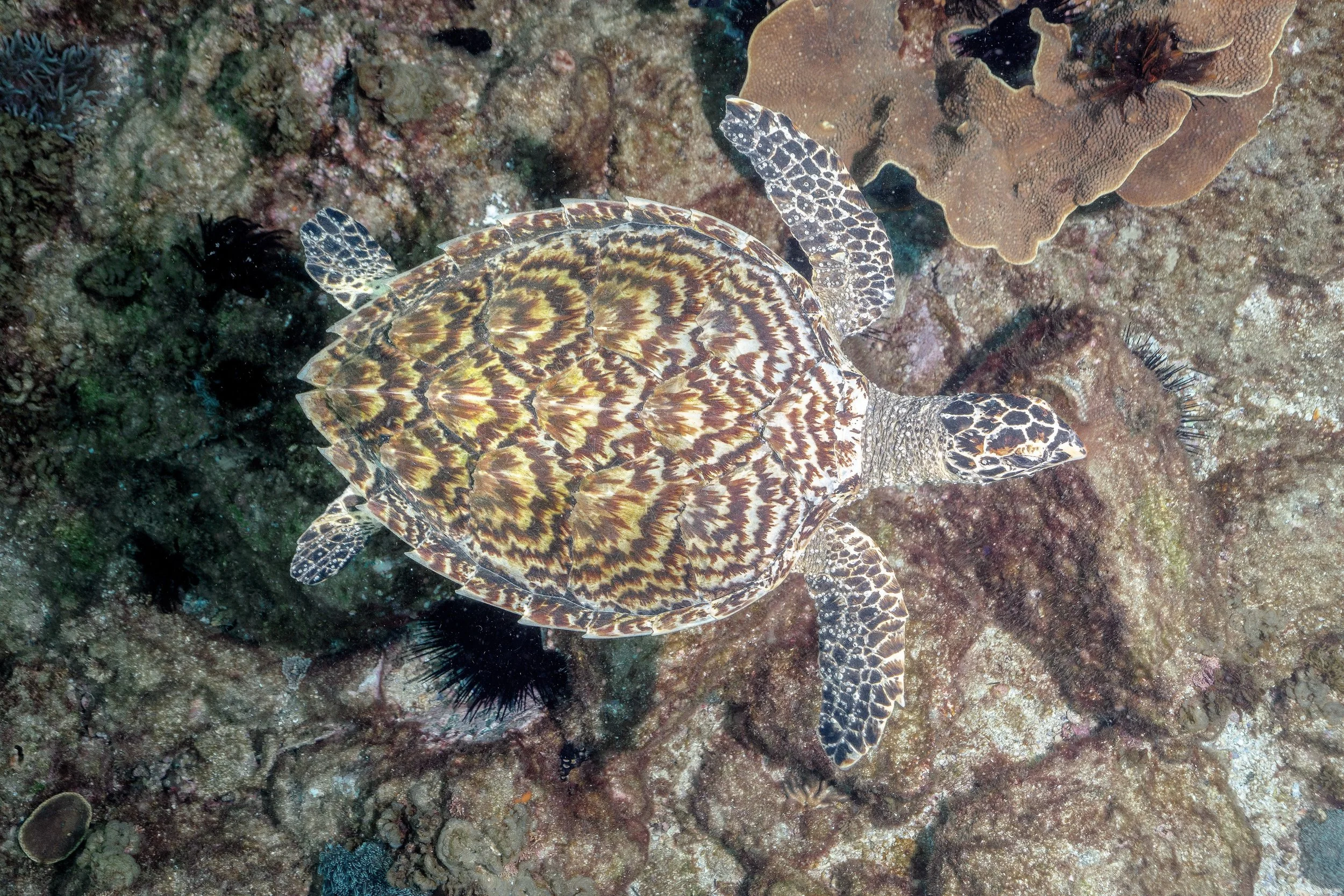Thanks to the latest advances in underwater cameras, researchers can now study sea turtle behaviors, habitat use, and fine-scale movements using an array of new technologies.
Read MoreFlanking the central coast of the Sultanate of Oman, less than 20 kilometers (12.4 miles) offshore, the dry, rugged desert island of Masirah hosts one of the most important loggerhead turtle rookeries in the world. In 1977, the scent of a major turtle discovery in Arabia had reached the nose of the renowned Dr. Archie Carr. Soon after, a joint initiative of the International Union for Conservation of Nature and World Wildlife Fund was launched, and Dr. James Perran Ross began a pioneering project there.
Read MoreAfrica’s sea turtles were once among the least studied in the world, and mounting threats to their survival, such as fishing, poaching, coastal development, and pollution, still require further study and urgent attention. Today, a growing number of institutions and individuals are shedding new light on sea turtle science, and they are helping find solutions to the continent’s sea turtle and ocean conservation challenges.
Read MoreDuring more than a decade of conservation, Vamizi’s 1,500 native residents have entirely turned away from their longstanding tradition of daily turtle consumption. Though researchers celebrated the shift as a conservation success, Interviews with local residents revealed some unsettling motivations for the change in behavior…
Read MoreGhost gear—intentionally or unintentionally abandoned, lost, or otherwise discarded fishing gear—is a global conservation problem that affects dozens of marine species, including sea turtles. Ghost gear continues to catch target and non-target species long after being lost, abandoned, or discarded, a process called ghost fishing.
Read MoreKnowing where turtles are in a particular life stage is a critical first step to defining Important Turtle Areas (ITAs), and recent advances in technology are allowing scientists across the planet to begin to unravel many of the mysteries of where turtles go while at sea. One area where this technology was recently applied with great results is the Arabian region, a part of the world not well known for its sea turtles.
Read MoreBaseline data on direct takes of turtles are vital for conservationists to measure their projects’ successes or failures and to help us avoid, or at least be aware of, shifting baselines, in which our perception of what is normal is influenced by what we have witnessed in our lifetimes. Having baseline data enables us to assess the impact of management strategies, conservation programs, or new policies and allows us to say with confidence: this is working, we are winning.
Read More









